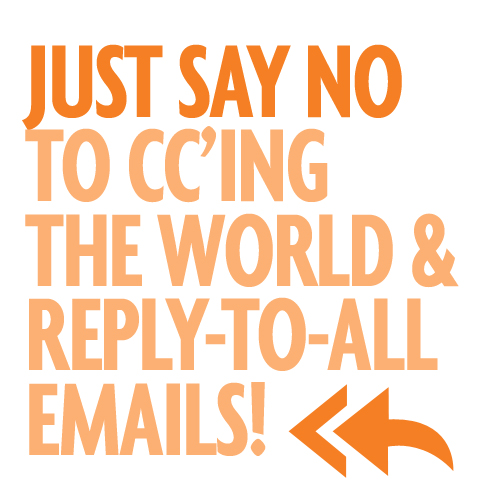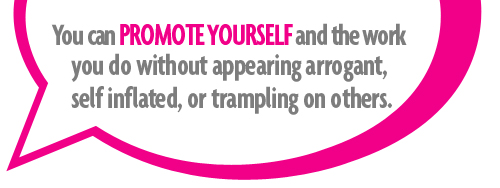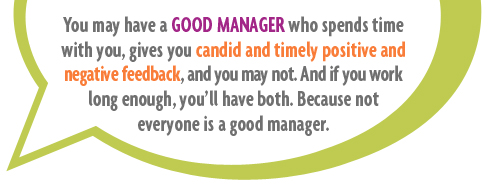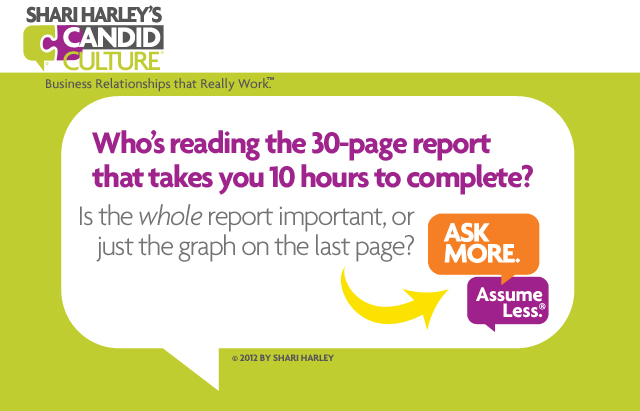Posts Tagged ‘reputation’
 Many of us have seen our friends, coworkers and even manager do really dumb things at the company holiday party.
Many of us have seen our friends, coworkers and even manager do really dumb things at the company holiday party.
Here are list of my favorites:
- Having a few too many drinks and sharing confidential information
- Wearing a dress that shows the people you work with more of your body than they should see
- Showing moves on the dance floor that you don’t have
- Hooking up with coworkers
Your company holiday party is a company event, and anything you wear, do, or say is grounds for gossip the next day at work.
Don’t become the topic of conversation the day after your company holiday party.
A few rules to live by at your company holiday party:
- If you wouldn’t want a picture of you wearing it hung up in a conference room, don’t wear it to the holiday party.
- Don’t get drunk at a company event, ever. If you get ‘chatty’ after two drinks, then two is too many.
- If you wouldn’t say something to someone at work, don’t say it at the holiday party.
The last rule: Help your friends and coworkers by stopping them from making career limited moves at company events. Rather than watching the train wreck go by as your friends say and do things they shouldn’t, gather your courage, and tell them it’s time to switch to club soda.
You may feel like you can’t give this type of feedback. It is hard to do, unless you’ve made an agreement before the party starts to do so. And even if you do make an agreement to tell people when they do something dumb, it’s still hard to do. But it will probably feel almost impossible if you haven’t set the expectation in advance.
So make a deal with your friends at work. If anyone says, does, or wears something really misguided to the holiday party, you will tell each other without negative recourse. And if all else fails, and you break ever ‘rule’ listed here, just call out sick for two weeks after the company holiday party, because that won’t raise any red flags at all.

You need something from Suzanne. Suzanne tends to ignore your emails. So in frustration, when sending Suzanne requests, you begin Cc’ing your boss and Suzanne’s boss. This has happened to most of us.
People Cc people who don’t really need to receive communications for a few reasons:
1) Sometimes people really aren’t sure who needs to know the information. So just to be safe, they include others. This can be quite innocent.
2) Sometimes people want others to know what they’re up to (a.k.a. they’re seeking recognition). This is not necessarily bad. It’s important to share what you’re doing for the organization, and cc’ing ancillary people on emails can be a very smart thing to do.
3) Lastly, sometimes people are afraid they won’t get what they need from the email recipient, so they Cc lots of people. This is typically not so innocent.
What should you do when someone Cc’s the world when emailing you, and you fear that it makes you look bad?

I suggest speaking directly with people who Cc others on emails. The conversation could sound something like this, “I noticed that when you email me you have a tendency to Cc other department heads. For example, last week when you asked me for the year-end numbers, you Cc’d my boss, Lisa in Marketing, and Bob in Sales. I was wondering why you’re doing that?”
Then stop talking and listen to what the person says.
Depending on what s/he says, you can respond with something like, “I will always strive to provide you with what you need. If you don’t get what you need from me in a timely way, by all means escalate your request, and go to the people above me. But I’d really appreciate if you’d come to me first and give me a chance to fulfill your request. Would you be willing to do that?”
If the person says something like, “I just think Lisa and Bob need to have this information. I have no other agenda,” you can respond with something like, “I don’t think they need this information, but why don’t we ask them. Would you be comfortable with that? I’ll send them both a message and Cc you, letting them know we talked about this email chain, and ask if they want to continue to receive the messages. How does that sound?”
You never know why someone is doing something, even if you think you know. Ask!

I encourage you to say something versus nothing. If you say nothing you’ll likely make decisions about the person and about your working relationship that may or may not be accurate. If you say nothing, the behavior is bound to continue.
People change their behavior for two reasons, positive and negative consequences. No consequences, no behavior change. No one likes to be ‘called on’ their behavior. Often a conversation like the one above will make the person uncomfortable enough to stop doing what they’re doing.
Reply All Etiquette:
More innocent than Cc’ing the world, but equally annoying, is the reply-to-all email. Someone in your office sends around a joke. Seventy-five people feel compelled to reply to all with their feelings about the joke. When I see things like this, I count how much money in lost wages companies are spending, that is, after I’ve put a pen in my eye.
To prevent reply to all emails, the person who initiates the first email can put in LARGE FONT, “Please reply only to me!”
You can also bcc people on the initial email so the reply’s don’t go to everyone.
It also takes only one person who asks people to stop replying to all, for the email chain to stop. And it’s perfectly appropriate to do this. The email could sound something like, “Going forward, please only reply to Brian, versus replying to all. Thank you!”
When things in the workplace frustrate you, it can be easier to say nothing than to say something. Saying nothing will also help nothing. The frustration is still there. The relationships are still damaged. Gather your courage, and save your office mates a lot of time.

Most managers write performance appraisals from a blank page. They sit at their desks trying to remember all the good things employees did throughout the year. But it’s hard to remember a whole year’s worth of events. So the appraisal ends up being a review of the last quarter, which is all they can remember.
Don’t let this happen to you.
The time to start preparing for your performance appraisal is now. Not in January, now.
Two months ago I wrote a blog encouraging you to ask your boss’s permission to give him/her a list of your 2012 accomplishments. Just in case you didn’t do it, I’m reminding you again.
Most of us are not great at self promotion. We think that if we do great work, the right people will notice, and we’ll get the recognition – status, money, responsibility – we deserve. In fact, many people critique others who are good at self promotion thinking that they’re suck ups, who make themselves look good at others’ expense. And we don’t want to be like that. So we decide, “I’ll quietly do my job well and eventually I’ll get the recognition I deserve.”
You can promote yourself and the work you do without appearing arrogant, self inflated, or trampling on others.
Think about it this way, no one knows the work you do better than you do. Your boss doesn’t follow you around. S/he doesn’t know all the great stuff you do every day. It’s your job to tell her.
Here’s how to promote yourself:
Create a one-page sheet of your projects and accomplishments. Bring this sheet to your one-one-one meetings with your boss, however frequently they occur. At the end of the year these sheets become the cheat sheet from which to write your review. Aggregate all the information you’ve captured during the year and ask your boss’s permission to provide it to help him/her write your appraisal. S/he won’t say no. Writing appraisals is time consuming. If you can make the process easier, it strengthens your relationship with your boss and makes you look good. But you must ask for permission to send the list.
If you haven’t been assembling a list of accomplishments, create one for 2012 now. And start creating a list in January of 2013, and add to the list regularly.
It’s your job to promote yourself and tell the people you work with what you’re doing. Simply say:
“Here’s what I’ve been focused on…”
“Here are a few projects my team finished…”
“Here’s something I’m working on…”
“I’m really proud of…”
Any of these phrases will do the trick. Don’t make your boss guess. Make it easy to promote you.

Sometimes we ask people for feedback when we don’t really want the answer.
• Do I look fat in these pants?
• Do you think ______ (insert name of person you’re dating) is right for me?
• Was I rude to ______ (insert name of person who annoyed you)?
• Did I do a good job on ______ (insert project)?
Don’t ask questions you don’t want answered. If you do ask, don’t get defensive when you get an answer you don’t like.
If you ask for feedback, people may just give it to you. When they do, make it easy on them. So they’re willing to do it again. Don’t get defensive!
Every time we get defensive, we train people not to tell us the truth. And it doesn’t take many instances of dealing with our defensiveness before people learn that telling the truth (as they see it) is just too hard. So they stop. And we continue dating the wrong people, while wearing the wrong pants.
The right answer to feedback is always “thank you”, regardless of what you think of the feedback. It could sound something like, “Wow, that’s really disappointing. Thanks for telling me.”
If you want someone’s opinion, ask for it. And accept whatever they say graciously, regardless of what you actually think. And if you don’t want honest feedback or can’t take it without saying “thank you”, don’t ask.
A few months ago, a participant in one of my programs asked me if introverted leaders are at a disadvantage in the workplace? The answer is a resounding YES!
Her question reminded me of a conversation I had with a manufacturing plant manager years ago. He was frustrated with his safety manager who was quiet and didn’t speak up in meetings. The plant manager was gregarious and hired people who matched his style. Everyone on his leadership team, excluding the safety manager, was outspoken. Their team meetings were boisterous events in which everyone talked, excluding the safety manager. The plant manager felt that if the safety manager didn’t start speaking up in public settings, his contribution and career would be limited.
Often the only exposure most employees get to their organization’s senior leaders is in meetings. And introverts often don’t speak up in meetings. Senior leaders often decide that because they’ve never heard ______ (insert name) speak, s/he must have nothing to say. This isn’t true, of course. And it isn’t fair. But it is how it is.
Extroverts think as they’re speaking, hence the expression think out loud. Introverts typically think through their thoughts before they share them.
Introverts have a lot to say. And because they process before they speak, what they have to say can be more thoughtful than what extroverts say. But the senior people in your organization are busy. While they may want to get to know each employee personally, they simply can’t. Busy schedules and limited exposure force senior people to form quick and sometimes inaccurate impressions and judgments about employees.
Introverted leaders need to find ways to make their opinions and contributions known. And they can do that in a variety of ways that are aligned with their personal styles. None of us are going to, nor should we, become a different person to fit in at work. We can adapt and adopt different behaviors, but we are who we are. And if we try to be someone we’re not, that façade will eventually become unbearable, and we’ll quit.
My advice is to be yourself, and find ways to share your contributions in a way that resonates with your personal style.
Here are a few suggestions for introverted leaders:
- If you’re uncomfortable speaking up in meetings, email your ideas to senior leaders, where appropriate.
- Ask for a one-on-one meeting with your boss’s boss. Ask your boss to support the meeting and tell him/her that you know you’re quiet and you want to increase your exposure in the organization. Don’t go around your boss. This will never bode well. Simply demonstrate self awareness, commitment to your career and to the organization, and ask for your boss’s support. Prepare an agenda for the meeting that includes potential solutions to organizational challenges.
- Make sure you are meeting with your direct supervisor at least once a month. During the meetings share your most recent accomplishments. These meetings are an appropriate place to self promote. If you don’t tell your boss all the great things you’re doing, s/he may not know. And if s/he doesn’t know what you’re doing, she definitely can’t share your accomplishments with others. If your boss doesn’t schedule one-on-one meetings, ask for the meetings. That request can sound like, “I know how busy you are. I want to be sure you know what I’m working on and that I get your input on projects. Can we meet once a month to discuss?” There are more examples of how to get more face time with and feedback from your boss in chapters five and nine of my new book How to Say Anything to Anyone.
- Push yourself. If you’re asked to present at a meeting, do it, even if you’re uncomfortable. Make notes and practice out loud until you’re more comfortable.
- Ask for exposure to different types of work and departments in the organization. Cross train where appropriate. Offer to help on projects outside of your role. Meet people in other departments. Get to know more about what others do and how you can add value to their department and projects. This will demonstrate your commitment to your career and to the company, and will give you exposure to different people and parts of your organization.
In other words, push yourself. Your job will feel richer and you’ll be positioned to do more.
Unless you work in a cave, you know that people have a tendency to talk about you, not to you.
Often employees have no idea where they stand performance-wise, in their organization, because for the most part, people don’t tell them. This lack of information leaves employees in the dark, not knowing what to do more, better, or differently.

People we interact with peripherally, if at all, talk about us to the powers that be in our organizations. And we have no idea. We often don’t know what is said about us, by whom, and to whom.

I learned this lesson several years ago, before starting Candid Culture.The most senior woman at the company where I was working, the President of a division, told my boss she’d like to mentor me. Doesn’t that sound nice? The funny thing is, beyond saying hello to me in the hallway, I didn’t even think she knew who I was. We never worked together, and our paths rarely crossed.
During our first meeting, the first thing my new mentor said to me was, “I think you’re checked out. So get in or get out. But decide.” Holy _____!!!! I was shocked. She was right, of course. I was already planning to quit and start a business. But I didn’t know that it showed.
I’m not telling you this as a lesson about how to manage your professional reputation, even when you may be looking for your next opportunity. Not that that isn’t important. It is. It’s just not my point here. The reason I’m telling you is this: My new mentor was the most senior woman at the company. She reported to the CEO. My boss was her peer. She told me she thought I was checked out. Do we think she kept that observation to herself. It’s doubtful. I’m SURE it came up in a leadership meeting with all of her peers –the C-Suite.

If you don’t know who whispers in your boss’s and his/her boss’s ear about you, find out. And the person to ask is your boss. S/he knows and will most likely tell you, if you ask.
Here are a few questions you can ask your boss to help manage your professional reputation:
- What skills do I have that the organization values most?
- What contributions have I made that the organization values most?
- What mistakes have I made from which I need to recover?
- Who in the organization should I have a good relationship with?
- Who/what departments should I work closely with?
- Who impacts my reputation and the opportunities I have?
Yes, you can ask these questions. No, you won’t die. Yes, your boss will answer them. No s/he won’t be annoyed. I assure you, your boss has had few if any employees who asked him/her these questions. It will be a refreshing change.
Just remember, the right answer to feedback is “thank you,” regardless of what you think in your head. The easier it is to give you feedback, the more you’ll get.
Read more about how to manage your professional reputation and get more feedback in my new book.
The people in your life are not inclined to tell you the truth. In fact, they’ve been trained not to. Every time your friends, family, and coworkers told the truth (as they saw it) and the recipient responded defensively, their brains got trained –it’s not safe to tell the truth. So they stopped doing it.

Gossip damages relationships and tears families and organizations apart. But gossiping about the things that frustrate us feels easier and safer than talking to the offender directly when we anticipate resistance.
We have all watched our friends at work wear clothing that wasn’t the best choice, over speak in meetings, and make other career-limiting moves. And we said nothing. Because we felt it wasn’t our place to say something, or the input was not invited nor welcome.

If you want to be successful at work and for your career to grow, you need to surround yourself with people who will tell you the truth. These people don’t need to be your direct supervisor, the leaders in your organization, or your customers, although they may be. They can be your friends, family, and coworkers.
If you are consistently late, wear clothing that is not appropriate for work, or make commitments and then break them, your friends and family know that. Some people say they are a different person at work and at home. I don’t know that I buy that. We may exhibit different communication methods at work and at home, but our bad habits are the same.
The coworkers you sit near see and hear you work. They witness many of the good and not-so-good things you do at work that either help or damage your reputation. But they won’t tell you what those things are if you don’t ask. And even if you do ask, they still may not tell you. You have to ask for feedback and make it easy (safe) to give.
I recommend assembling what I call a Core Team of five or six people who will always tell you the truth. These are people who like and care about you. They are not the people you distrust and are struggling to work with. They may be current or past coworkers, friends from high school, college or today, and family members. These are the people who really know you and want you to be successful, and will thus tell you the truth –if you ask.
Here’s how to ask for feedback from the people in your life who care about you:
-
Pick a few people, using the criteria above, to be on your Core Team.
-
Tell them you want to get a better sense of the positive and not-so-positive things you do that may impact your reputation at work.
Here’s how you could ask for feedback:
“I am committed to my career and I want to eliminate any blind spots that may limit me. You know me well and watch me work. I would really appreciate your feedback. When you see me do anything that may limit my success, I give you permission to tell me. And if you’d like, I’ll do the same for you. I promise that no matter what you say and how hard it is to hear, I will make it easy to give me feedback and I will say thank you.”
-
Ask for specific feedback.
Examples of questions you could ask:
- What is the first impression I make?
- What’s my reputation in the office?
- What do I do that makes me good to work with?
- What do I do that makes me challenging to work with?
- If I could change one thing that would make me more successful, what would it be?
- What strengths do I have that I should use more and leverage?
-
Promise that no matter what they tell you and how difficult it is to hear, you will say thank you. And tell them you may come back to them with questions and to discuss further after you’ve processed what they said.
Saying thank you and nothing else, as you react to the feedback, which you will, makes it safe to give you feedback and more likely that you will receive feedback more than once.
There are more ways to ask for feedback and specific questions to ask in my new book, How to Say Anything to Anyone. And if you want the complete list of questions to manage your career and reputation, you can get them here.
Asking for feedback and saying thank you may sound difficult, and it can be. But it’s not as difficult as getting passed over for projects and jobs. You can do this!
No matter how much you like and get along with your boss, your boss is not your friend. Nor is your boss your confidant or venting buddy.
Unless your boss follows you around all day, every day, she is not aware of all the things you do at work. And if she does follow you around, she probably needs more to do, which I doubt.
Given that your boss often doesn’t see you work, the only exposure you may have to each other is during one-on-one and group meetings. So be careful how you behave during these meetings.
I’ve made lots of career mistakes . . . once. Here’s a mistake I made before launching Candid Culture. I’m hoping you won’t replicate it.
In my last job, I was lucky enough to have a great boss. He was a good coach and mentor. He supported me, gave me exposure throughout the company, and always had my back. We didn’t cross paths much at work, except during our regularly scheduled one-on-one meetings.
I’m what some might call passionate. I have a strong sense of what is right and what is wrong. And I can be critical of those who I think don’t do the right things.
I would often share my frustrations with my boss. The head of that department didn’t do this. This person made a bad call. So and so was making my employees’ lives hard. I wasn’t complaining, well I kind of was, but not without a purpose.
One day my boss called me out on my passionate (and at times critical) style. He said that if I was so impassioned during meetings with him, he assumed I was equally vocal in meetings with other people and departments.
This wasn’t the case. I was very careful in how I managed myself with other people in our company. I understood the importance of good business relationships and knew that people work with the people they want to work with and around the people they don’t.
But my boss didn’t get to see any of those interactions. For the most part all he saw was how I interacted with him during our meetings. With no other point of reference he was left to assume that if I vented with him, I did this with other people. If I got a little too soapboxish about an issue with him, I must do the same in other meetings. I didn’t do those things with other people, but he had no way to know that.
My boss and I had a good relationship and I felt comfortable with him, probably too comfortable. I was politically savvy with everyone but him.
Your boss is an appropriate person with whom to express frustration, but manage how you do it. Don’t vent to vent. Every topic you raise should be with the aim of problem solving. Keep things honest but positive. Vent and complain at home, or with someone who doesn’t know the people you work with. Or better yet, spare your friends and family, and take your frustration to the gym, or the shoe department, whatever your preferred form of therapy.
Assuming you have limited exposure to your boss, make the time you have with her count. Put in front of your boss only what you want her to see. I’m not saying to be disingenuous or brush problems under the rug. Speak candidly, but manage yourself with your boss as you would with any internal or external customer.
If you stayed out until two in the morning and you’re dragging the next day, your boss doesn’t need to know that. She will assume you’re not on your game that day and that will be a check mark in the negative category for lacking good judgment and commitment to your job and the company. If you had a bad date, your boss doesn’t need or even want to know. If you think someone you work with is a dolt, ask for help in how to work well with him, and keep your opinion of his acumen to yourself.
Your boss has limited time and exposure to you. Manage yourself by showing him your polished and professional self.
Unfortunately people taking phone calls via speaker phone, listening to music without headphones, and entertaining a posse’ of visitors in his/her cube is not limited to the movie Office Space, which should be required viewing for anyone who works with other people.
Cubeland can be loud. And most people are hesitant to ask our coworkers to quiet down. We’re afraid of the conflict. We don’t want our coworkers to dislike us, talk poorly about us when we’re not there, or kill us off. So we suffer in silence, hoping the person will get a clue that he’s making us crazy. He won’t. If he knew the phone calls bugged you, he would have already stopped making them.
You may find it incredulous that your coworkers don’t know how annoying noise in cubeland is. It’s an obvious, no brainer. How could they not know?

Much of Candid Culture’s work is dedicated to people feeling more comfortable telling the truth at work. But even with books, and training on how to establish candid relationships and tell the truth, speaking up is often challenging. So know that if you are doing annoying people at work, they are not likely to tell you.
Here’s what you can do: Avoid annoying people at work. For your convenience, I’ve made a short list.
- Conversations, music, and phone calls taken on speaker phone in cubicles. Take the meeting or conversation to an empty office or conference room.
- People who are late for meetings and text or email throughout meetings.
- People who start most sentences with, “No we can’t do that, and here’s why.”
- People who say they’ll do something and miss the deadline every time.
- People who borrow your stuff and don’t return it.
Look at how much stress I’ve saved you. Now you don’t need to give the people you work with feedback, you can just forward them this blog, which is a passive aggressive form of feedback. But it beats throwing their phone out the window or hiding out in an empty office so you can actually get some work done.
If you choose candor instead (which I, of course, prefer) simply say, “It’s hard to work when music is playing, or when you’re on your speaker phone, or you’ve got visitors in your cube. I know space is at a premium. But if you’d be willing to take the conversations elsewhere, I’d really appreciate it.” Done in twenty seconds or fewer. And no one died. You can do it. And if you can’t, call me, and I’ll do it. It’s always easier to have these conversations when they’re not your own. But it will cost you a bag of chocolate chip cookies or perhaps a Candor Bar.
The sprinkler guy just left my house, after teaching me the nuances of how sprinklers work for TWO hours. I don’t want the details about how the sprinklers function. I don’t care. I just want them to work. And I told the sprinkler guy this. But he insisted on teaching me –a.k.a. dragging me to each broken sprinkler head and having me observe as he repaired it. Exasperating! Then he billed me for his time. Without the lesson the visit would have been 30 minutes and $45. With the lesson, it was two hours and $130.
Read your audience. Are you putting in too much work?
Where are you over communicating? Who’s reading all of those PowerPoint presentations and reports? Just because you’ve created that report for the past five years doesn’t mean it’s still necessary or desired.
Ask your internal and external customers (everyone you work closely with) how they want to receive information, in what format, and how frequently.

Ask internal and external customers:
- Do they prefer to receive information in bullets or narrative form? Detailed or big picture? Graphs and/or charts?
- What information is important and what is unnecessary?
- Who needs to receive the information? People have enough to read. Most people won’t be insulted to receive one fewer email.
- How often do they want to receive the information?
I am hesitant to change processes when I begin working with an organization, assuming there is a good reason they exist. But when I ask why we do certain things as we do, invariably no one can tell me. I am often told, “We’ve just always done it that way.”
Don’t change things just to change them. And before you make a change, consult those who are impacted. Ask what people want and what they don’t. Then make changes. You may just pick up 10 extra hours each week and reduce your and others’ frustration 20 fold.
 Many of us have seen our friends, coworkers and even manager do really dumb things at the company holiday party.
Many of us have seen our friends, coworkers and even manager do really dumb things at the company holiday party.













